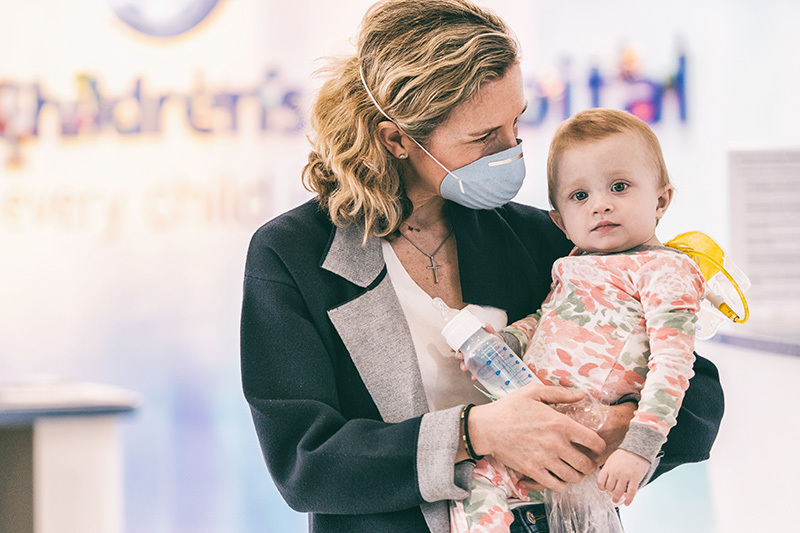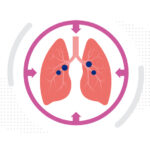In the coronavirus crisis, when should your child see the doctor?

If your child is sick or is due for a checkup or vaccine, you may wonder if it’s okay to go to the doctor right now. With more pediatricians seeing patients remotely in the midst of the coronavirus crisis, the majority of routine and sick visits can be managed via telehealth. But there are still some needs that require an in-person visit.
“While we can manage a lot remotely, especially with video visits, there are times when a child needs to be examined, or when tests or treatments need to be done in person,” says Dr. Claire McCarthy, a pediatrician with the Children’s Hospital Primary Care Center (CHPCC) and director of the Pediatric Diagnostic Program.
Finding the best approach for your child
“Every practice is different as to which children they are seeing as they weigh the risks of having families leave the safety of their homes,” Dr. McCarthy explains. Further, two children with similar conditions might require different approaches. Therefore, she stresses the importance of talking to your pediatrician to find out the best plan for your child’s specific situation.
When to call your doctor
If your child is experiencing any of the following symptoms, call your pediatrician to find out if this warrants a trip to the office:
- a high fever
- trouble breathing
- any significant pain (in babies, irritability that cannot be consoled)
- unusual sleepiness
- any significant injury, especially if there is bleeding that won’t stop, or the child has trouble walking or doing usual activities after an injury
- unusual rashes
- unusual changes in behavior
- anything else that doesn’t seem right to you
Managing health and wellness
There are also a number of more routine health care visits that need to continue, even in the midst of the coronavirus. These include:
- routine vaccinations for babies (check with your practice for what ages they are seeing in person)
- a condition that requires regular in-person intravenous or injection treatments, such as cancer or chronic conditions such as juvenile arthritis or Crohn’s disease.
- a condition that requires a physical examination, like high blood pressure or weight concerns — or one that requires a blood or urine test, such as anemia or kidney disease
Talking to your pediatrician
In some cases, your doctor may find it essential to see your child on schedule. In other cases, you may be able to extend the timing a little. “While some of these visits can be postponed (after talking with the pediatrician and assessing your child’s and family’s specific risk factors and circumstances), they do need to happen in person at some point. It’s important to call your doctor and let them help you figure out the best timing,” Dr. McCarthy says. Putting off important treatments, vaccines, or checkups too long could put your child at risk for serious consequences later.
Pediatric practices put safety first
If your child does require an in-person visit now, it may ease your mind to know that all pediatric practices have taken steps to prevent the transmission of COVID-19.
“At Boston Children’s, we are working to streamline visits so people get in and out quickly, and are taking steps to help prevent any spread of illness,” Dr. McCarthy says. This includes separating well-baby checkups and vaccines from sick visits, requiring patients and providers to wear masks and gloves, deep cleaning of rooms between patients, and minimizing the number of people in the facility, including asking families to have one caregiver bring the child and leave siblings home.
“We understand that sometimes it isn’t possible to leave others at home; we ask that people let us know if that is the case,” she adds.
Preparing your child for a visit
When your child needs to come to the pediatrician in person, Dr. McCarthy reminds parents that the office setting will look very different, with people wearing masks and gloves.
“It’s important to prepare children for this, and talk about how we are all doing our best to be safe, which is why we are dressing differently. It’s also important to let children know that we will be asking them to wear a mask, too. However, everything else about the visit will be the same,” she stresses.
“For some children, such as children with autism, wearing a mask can be difficult. If you think your child is going to have a problem with wearing a mask, or is more likely to be overwhelmed by people looking different, you should let the doctor know so that you can make a plan together.”
Weighing the risks and benefits of a doctor’s visit
If your child needs to come in for a visit but you are still worried about leaving your house while the coronavirus remains a significant threat, Dr. McCarthy suggests you discuss your fears with your doctor — and remember that your pediatrician has your child’s best interest at heart. “We want your child to be safe and well too,” she says.
Get more answers about Boston Children’s response to COVID-19 and learn about Children’s Hospital Primary Care Center (CHPCC).
Related Posts :
-

A better treatment for endometriosis could lie in migraine medications
Endometriosis is a common, mysterious, often painful condition in which tissue similar to the uterine lining grows outside the uterus, ...
-

Modifying macrophages in the lung could head off pulmonary hypertension
In the 1980s, when Stella Kourembanas, MD, began her career in neonatology, she cared for newborns with pulmonary hypertension, a ...
-

My son is a NICU GraD: Here’s what I’ve learned
My husband and I aren’t first-time parents, but when our twins were born nine weeks early a year ago, ...
-

EarlyBird: Addressing dyslexia through game play
Up to 10 percent of the population has dyslexia, yet many children are diagnosed only after struggling with reading for years. ...





